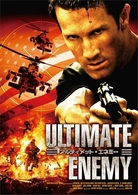- ホーム
- > 洋書
- > 英文書
- > Business / Economics
基本説明
Discusses the complexity of social issues in personal, academic, and business solutions.
Full Description
"Multi-level Issues in Social Systems" contains five major essays with commentaries and rebuttals that cover a range of topics, but in the realm of social systems. In particular, the five critical essays offer extensive literature reviews, new model developments, methodological advancements, and some data for the study of human resources management in organizations, continuous learning in organizations, divorce in the family, industry-university dynamics involving intellectual property, and organizational leadership. While each of the major essays, and associated commentaries and rebuttals, is unique in orientation, they show a common bond in raising and addressing multi-level issues or discussing problems and solutions that involve multiple levels of analysis in various types of social systems. This book discusses the complexity of social issues in personal, academic, and business solutions. It reviews empirical data, provides thorough discussion, and multiple levels of analysis.
Contents
Overview: Multi-level Issues in Social Systems (F. Dansereau and F. J. Yammarino). Part I: Human Resources Management: Multi-level Fit. An Integrative Framework for Understanding Human Resources Management Practices in Cross-cultural contexts (K. A. Aumann and C. Ostroff); An organizational perspective on multi-level cultural integration: Human Resource Management Practices in Cross-cultural Contexts (X. Chen and A. Tsui); Integrating HRM Practices into a Multi-level Model of Culture: Cultures Values, Depth and Strength.(M. Erez); Multi-level Fit: Complexity, Values and Climate (K. A. Umann and C. Ostroff). Part II: Continuous Learning: Continuous Learning in Organizations: A Living Systems Analysis of Individual, Group, and Organization Learning (M. London and V.I. Sessa); Continuous Learning: Why is it Still an Issue? (D. V. Day and B.W. Tate); A Multi-level Inquiry and Elaboration: Continuous Learning Within and Across Organizations, Groups, and Individuals. (S. E. Markham, R. L. Groesbeck, and B.R. Swan); Continuous Learning About Continuous Learning: Clarifying and Expanding a Multi-level, Living Systems Analysis (V.I. Sessa and M. London). Part III: Divorce and Family: The Importance of the Common Family Background for the Similarity of Divorce Risks of Siblings: A Multi-level Event History Analysis (J. Dronkers and J. Hox); Sibling Effects on Divorce: Common Family Background, Common Genetic Heritage, or Continuining Interaction Among Adult Siblings (M.P. Farrell); Multi-level Event History Analysis for a Sibling Design: The Choice of Predictor Variables (T.A.B. Snijders); Additional Thoughts About the Importance of Common Family Background for the Similarity of Divorce Risks of Siblings (J. Dronkers and J. Hox); Part IV: Industry-University Dynamics: Industry-University Intellectual Property Dynamics as a Multi-level Phenomenon (M. Jelinek); Industry-University Relationships and the Context of Intellectual Property Dynamics: the Case of IBM (M.L. Baba); Industry-University Technololgy Transfer: Moving the Research Agenda Forward (M. Feldman); Industry-University Intellectual Property in Context: Framing the Deal and Dealing with the Frame(s) (M. Jelinek). Part V: Organizational Leadership: The Lampe Theory of Organizational Leadership (K. D. Mackenzie);"Breaking the Frame" Even Farther: Complexity Science and Lampe Theory (M. Uhl-bien and R. Marion). Some Ideas about Testing Processual Theories (K.D. Mackenzie). Part VI: About the Authors.








